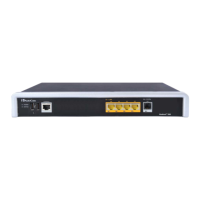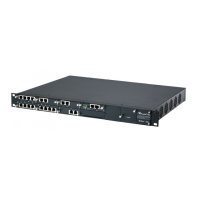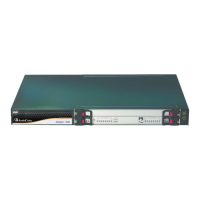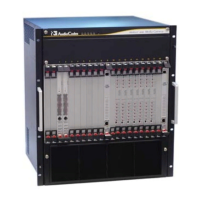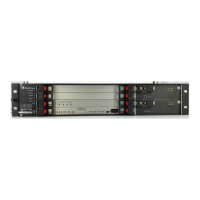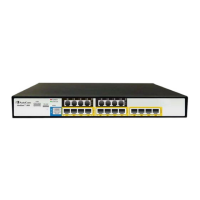User's Manual 156 Document #: LTRT-10532
Mediant 500L Gateway & E-SBC
12.7 Network Address Translation Support
Network Address Translation (NAT) is a mechanism that maps internal IP addresses (and
ports) used within a private network to global IP addresses and vice versa, providing
transparent routing to end hosts. The primary advantages of NAT include (1) reduction in
the number of global IP addresses required in a private network (global IP addresses are
only used to connect to the Internet) and (2) better network security by hiding the internal
architecture.
The design of SIP creates a problem for VoIP traffic to pass through NAT. SIP uses IP
addresses and port numbers in its message body. However, the NAT server is unable to
modify the SIP messages and thus, can’t change local addresses to global addresses.
This section discusses the device's solutions for overcoming NAT traversal issues.
12.7.1 Device Located behind NAT
Two different streams traverse through NAT: signaling and media. A device located behind
a NAT that initiates a signaling path has problems receiving incoming signaling responses
as they are blocked by the NAT server. Therefore, the initiating device must inform the
receiving device where to send the media. To resolve this NAT problem, the device
provides the following solution :
If configured, uses the NAT Translation table which configures NAT per IP network
interface - see Configuring NAT Translation per IP Interface on page
157.
If NAT is not configured by any of the above-mentioned methods, the device sends the
packet according to its IP address configured in the IP Interfaces table.
The figure below illustrates the NAT problem faced by SIP networks when the device is
located behind a NAT:
Figure 12-5: Device behind NAT and NAT Issues

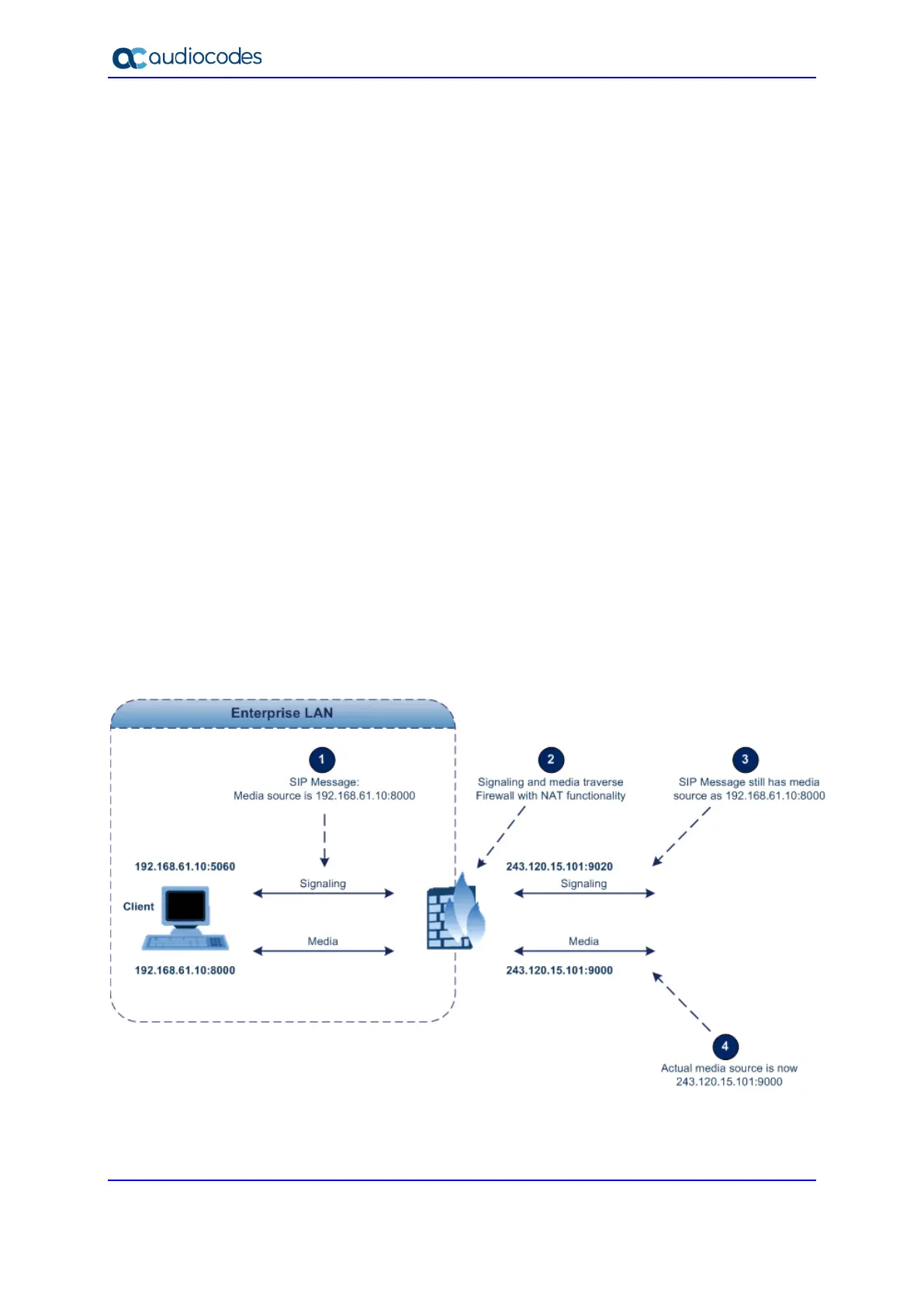